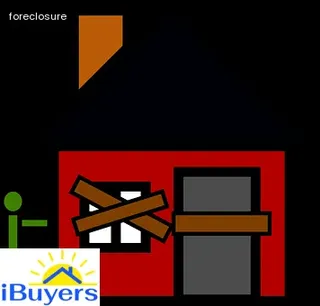The foreclosure process in New Jersey can be a long and complicated one. It is important to understand the length of this process, so that you are better prepared for it.
The first step in the foreclosure process is usually when your lender sends you a Notice of Intent to Foreclose. This letter will let you know that your loan is in default and the foreclosure process has begun.
After the Notice of Intent is sent, the lender must wait 30 days before filing a complaint with the court. In some cases, lenders may choose to try and work out an alternative plan for payment with you during this waiting period.
If no alternative agreement is reached, then your lender will file a complaint with the court and ask for permission to foreclose on your property. Once this happens, it can take several months or even up to a year before the foreclosure action is finalized by the court.
During this time, it's important to seek legal advice and consider all options available to you in order to avoid or delay foreclosure proceedings if possible. There are resources available in New Jersey which can provide free case evaluations and help guide you through this complex process.

Foreclosure delays in New Jersey have been a common occurrence over the past few years. Many homeowners who are facing foreclosure have had to wait months or even years for their cases to be resolved.
In some cases, this has allowed homeowners to keep their homes and avoid foreclosure altogether. The state of New Jersey has put in place certain measures to help protect homeowners from unnecessary delays.
These measures include allowing borrowers to pursue loan modifications and other assistance programs, placing stricter regulations on lenders, and providing more timely communication between lenders and borrowers. Additionally, the state of New Jersey offers a free case evaluation that can help homeowners understand the length of their foreclosure process.
With this information in hand, they can better prepare themselves while navigating the process and make decisions that will allow them to keep their home or find another housing solution if needed.
The process of foreclosing on a home in New Jersey can be long and complicated, but understanding the steps involved can help you make informed decisions about your options. The first step is for a lender to issue a notice of default, which is an official document that states the borrower has failed to make payments as agreed and is in violation of their loan agreement.
After this, the lender may file a foreclosure complaint with the court in order to seek a judgment from the court allowing them to take possession of the property. Once the court issues its judgment, it is up to the lender to complete all necessary paperwork and file it with the county clerk's office before they can begin foreclosure proceedings.
After filing all documents with the county clerk’s office, the lender must wait at least 21 days before scheduling a sheriff sale date. At this point, potential buyers are allowed access to view and bid on the property at auction.
If no bids are received or if they are rejected by the lender, they will have full ownership of it and can proceed with eviction proceedings if needed. If you're facing foreclosure in New Jersey, it's important to understand these steps and get a free case evaluation so you can make informed decisions about your options.

Facing foreclosure can be a daunting experience, but luckily there are several steps you can take to avoid it. In New Jersey, understanding the length of foreclosure is key in determining what your best option might be.
Before doing anything else, it’s important to get a free case evaluation from an experienced foreclosure attorney who can guide you through the process. From there, you may have options such as loan modification or mediation that could help you keep your home and avoid foreclosure.
You can also consider selling your home if this would better fit your financial situation. It is also possible to work with mortgage lenders or servicers directly to discuss potential solutions.
Lastly, filing for bankruptcy is another option that could potentially delay foreclosure proceedings and give you more time to come up with a solution. Regardless of the route you take, having an experienced foreclosure attorney on your side can make all the difference in helping you avoid foreclosure and get back on track financially.
An attorney can be a great resource for someone facing foreclosure in New Jersey, as they understand the legal implications of the process. With an experienced attorney at their side, homeowners have access to advice on how to navigate the complexities of foreclosure proceedings and can obtain a free case evaluation to determine their legal rights.
In addition to providing counsel, an attorney can help ensure that all deadlines are met by lenders and courts, provide guidance on potential loan modification or loss mitigation strategies and help a homeowner explore their options if they decide it’s time to walk away from their home. An experienced lawyer will also be able to negotiate with lenders and creditors in order to minimize any financial damage or losses that may result from the foreclosure process.
Ultimately, having expert legal representation when it comes to foreclosure proceedings can make all the difference in achieving a favorable outcome.

Understanding the length of foreclosure in New Jersey can be daunting, but help is available to those who are facing foreclosure. Legal professionals are available to help homeowners understand their rights and options when it comes to foreclosure.
A free case evaluation can help home owners determine what steps they need to take to avoid foreclosure or modify their loan. Experienced attorneys specialize in Foreclosure Law and can provide advice on how to navigate the process, including strategies for short sales, loan modifications and bankruptcy.
With the right help, current foreclosures can be addressed with a plan that works for both lenders and borrowers alike.
When an individual is facing foreclosure in New Jersey, the length of time it takes to complete the process can vary significantly. It's important to understand the timeline involved and what options you may have to avoid foreclosure or negotiate a plan with your lender.
One option that may be available is waiving post-foreclosure deficiencies, but what exactly are these? Post-foreclosure deficiencies refer to any debts left unpaid after a foreclosure sale has been completed. These debts can include attorney fees, taxes, title insurance premiums and other costs associated with the foreclosure action.
If a court approves a waiver of these post-foreclosure deficiencies, then the homeowner will not be held responsible for paying them. However, it should be noted that this option is not always available and will depend on the circumstances of each case.
When considering whether or not this option is available in your situation, it's important to consider all of your legal rights and options. To learn more about this issue and get a free case evaluation from an experienced foreclosure attorney in New Jersey, contact us today.

If you have questions concerning your foreclosure case in New Jersey, you can get a free case evaluation. An experienced attorney can provide advice and determine the length of time it will take for the foreclosure process to be completed, as well as discuss options that may be available to avoid losing your home.
Knowing the timeline of a foreclosure is important so that you are aware of any deadlines that need to be met and what steps need to be taken in order to prevent your lender from taking possession of your property. An attorney can also help review paperwork, negotiate with creditors, and provide guidance on other related issues such as filing bankruptcy if necessary.
It is important to consult an experienced attorney who understands the complexities of New Jersey foreclosure laws and has experience handling such cases.
The length of a foreclosure in New Jersey depends on the type of foreclosure methods used by the lender. Generally, it can take anywhere from as little as two months to as long as a year or more.
The judicial foreclosure process, which is typically used for residential mortgages in New Jersey, typically takes at least 120 days. The nonjudicial foreclosure method, which is often used for commercial loans or some types of second mortgages, may take up to six months.
In either case, there are numerous steps that must be taken by both the lender and the borrower before the foreclosure process is complete. For example, after filing a complaint with the court and serving notice to the borrower, lenders must also wait for court approval before beginning any further action.
Borrowers may also have several opportunities to stop or delay the foreclosure process during this time period. If you've received a notice of default in New Jersey and are looking to understand your options better and explore potential solutions such as loan modification or forbearance agreements, contact an experienced attorney today who can provide you with a free case evaluation and help you better understand your rights under state law.

When considering a short sale proposal, many New Jersey homeowners wonder if their lender will reject it. The foreclosure process in New Jersey can be lengthy and complex, so it is important to understand how long the process may take in order to make an informed decision.
During the foreclosure process, lenders must make decisions such as whether or not to approve a short sale. Homeowners should be aware that lenders are not required by law to accept short sales and may choose to foreclose on the property instead.
They may also reject the proposal for reasons such as incorrect documentation, lack of sufficient equity, or failure to follow through with negotiations. Before submitting a short sale proposal, homeowners should review all pertinent documents and speak with their lender about their options.
It is also highly recommended that homeowners seek out professional legal advice from an experienced attorney who is familiar with New Jersey foreclosure laws and can provide a free case evaluation.
Filing for bankruptcy during a foreclosure can provide homeowners with a number of benefits. Bankruptcy can potentially stop the foreclosure process from continuing and protect the homeowner's assets from being taken by creditors.
Depending on the type of bankruptcy that is filed, it may also be possible to have some debts discharged or restructured in order to make them more manageable and reduce the overall amount owed. Additionally, filing for bankruptcy can provide some breathing room while the homeowner works to resolve their financial situation and develop a plan for long-term debt relief.
The filing of a bankruptcy petition will also put an automatic stay in place, which will prevent creditors from attempting to collect on certain debts while it is active. This can give homeowners much needed time to seek out alternatives such as loan modifications or short sales rather than having to face a full foreclosure.
Homeowners who are considering filing for bankruptcy should seek assistance from an experienced attorney in order to ensure that their rights are protected throughout the process and that they receive the best possible outcome for their individual situations.

When considering loan modification during a foreclosure, homeowners in New Jersey should be aware of the potential risks they could face. Before making any decisions, it is important to understand the length of a foreclosure process in New Jersey and obtain a free case evaluation.
Loan modification can be beneficial if done correctly, yet there are many risks involved ranging from increased interest rates to second liens being added to the mortgage. If a loan modification is not successful or declined, homeowners could find themselves in an even more difficult financial situation.
Additionally, during the loan modification process, additional fees may be charged that can add up quickly. It is therefore essential for homeowners to weigh their options carefully and make sure they understand all risks before pursuing loan modification during a foreclosure in New Jersey.
Property taxes are an important factor to consider when a property is in foreclosure in New Jersey. The amount of time the lender has to pay these taxes can vary depending on the stage of the foreclosure process.
Generally, it is the responsibility of the homeowner to keep up with their property taxes until the lender owns the home. In some cases, however, lenders will assume responsibility for these payments as soon as they have started proceedings.
It is important to understand this timeline and what rights you have throughout the process. If you are facing foreclosure in New Jersey, it is highly recommended that you speak with an experienced attorney who can provide legal advice and help you get a free case evaluation.
This way, you can gain clarity about your situation and determine the best course of action for your particular case.

Negotiating with your lender during a foreclosure can be a difficult process, but there are options available to reduce the mortgage balance owed. It is important to understand the length of foreclosure in New Jersey and what options are available for reducing the mortgage balance before pursuing this route.
An experienced attorney can provide guidance on the best approach for your individual situation. A free case evaluation can provide an understanding of whether or not it is feasible to negotiate with your lender.
During a foreclosure, lenders will often attempt to negotiate with homeowners in order to reduce or modify the loan terms. This is especially true if the homeowner has a good payment history and sufficient funds to make amortization payments during negotiations.
Negotiations may include modifying interest rates, extending loan terms, reducing principal balances, or offering other types of incentives such as debt forgiveness programs. Homeowners should consider their options carefully and seek out legal advice prior to engaging in any negotiations with their lenders.
Filing bankruptcy can be an effective way to stop a foreclosure in New Jersey. Bankruptcy is a legal process that grants individuals or businesses a fresh start by eliminating or restructuring debt.
When filing bankruptcy, lenders are prevented from continuing with the foreclosure process while the case is pending before the court. The length of time it takes to complete the bankruptcy process depends on several factors, including the type of bankruptcy filed and whether a person has filed for bankruptcy previously.
In most cases, filing Chapter 7 or Chapter 13 will provide protection against foreclosure within days of submitting the paperwork. To determine if filing bankruptcy is right for you and your specific situation, it’s best to get professional advice from an experienced attorney who specializes in foreclosures in New Jersey.
Many attorneys offer free case evaluations so you can understand your options and make an informed decision about how to proceed with your case.

New Jersey homeowners facing foreclosure may be eligible for state programs to help with their home retention and loss mitigation. Foreclosure can have a long-term effect on the homeowner's credit score, so taking advantage of these programs is essential.
To find out if you are eligible for any of these programs, it is important to understand the length of foreclosure in New Jersey. The state has varying timelines for foreclosures depending on the type of loan and whether or not it is a judicial foreclosure.
Knowing when your home will enter into foreclosure can give homeowners the opportunity to weigh out available options and make an informed decision while they still have time. Additionally, getting a free case evaluation from an experienced attorney or housing counselor can help provide more insight into what programs are available and what steps need to be taken to save your home from foreclosure.
When it comes to the legal challenge of an unfair or unjustified foreclosure in New Jersey courts, understanding the length of foreclosure and getting a free case evaluation is key. Depending on the nature of your case, you may be able to get a judgment that stops the foreclosure process altogether.
In some cases, you may also be able to get compensation for damages caused by wrongful foreclosures. It is important to speak with an experienced attorney who can help you understand your rights under state and federal law and explain the legal process involved in challenging a foreclosure.
When evaluating your case, they will take into account factors such as whether or not you were treated fairly by lenders throughout the foreclosure process and if any illegal practices were used to initiate or complete the foreclosure. They will also look at whether or not you have been given enough time to make payments and other information related to your individual situation.
With their help, you can better understand how long it will take for your case to reach resolution as well as what options are available for addressing any financial hardship caused by unlawful foreclosures.

Considering a foreclosure on your home can be an overwhelming decision, especially in New Jersey. It’s important to understand the length of the process and the potential options available to you.
For those facing default on their mortgage, selling your home before it goes into foreclosure could be a viable solution. This option allows you to avoid the damage to your credit that a foreclosure could cause and potentially recoup some of your losses.
When contemplating this route, it’s essential that you talk with a certified real estate professional who understands the New Jersey foreclosure laws and can help you explore all possible solutions that fit your needs. Additionally, many companies offer free case evaluations so it is worth exploring this option as well.
In order to make an informed decision about what is best for you and your family, take the time to evaluate all possibilities thoroughly and seek out expert advice when needed.
Banks in New Jersey may offer repayment plans to homeowners going through the foreclosure process. It is important for homeowners to understand the length of foreclosure in New Jersey, as this will impact how banks or lenders approach providing a repayment plan.
If a homeowner has missed payments, they may be able to negotiate a repayment plan with their lender that allows them to slowly repay what is owed over time. This can be beneficial for homeowners who are unable to make larger lump-sum payments due to financial hardship.
Additionally, certain government programs exist that provide assistance for homeowners facing foreclosure and these can help connect them with resources and services that will guide them through the process. To learn more about your specific situation, it is recommended to consult a legal professional regarding your case and get a free evaluation.

Navigating the New Jersey foreclosure process can be a daunting task, but there are resources available to help. Free case evaluations by experienced legal professionals can provide an understanding of the length of the foreclosure process in New Jersey and what may be required.
Attorneys specializing in foreclosure law can explain the procedures involved in stopping foreclosure and discuss potential strategies for saving your home. The New Jersey courts website provides helpful information on filing deadlines, forms, and other key elements of the state’s foreclosure laws.
Additionally, local county websites provide details on how to initiate a foreclosure action or defend against one. Homeowners facing financial difficulties should seek assistance from HUD-approved housing counseling agencies which offer guidance on avoiding scams, budgeting for loan payments, and other important topics related to the NJ foreclosure process.
All of these resources exist to help homeowners determine their options and make an informed decision about their financial future.
The foreclosure process in New Jersey can vary significantly depending on the circumstances surrounding each individual case. Generally speaking, the average timeline for a foreclosure in New Jersey is between six and nine months from the date of notice.
However, this timeline can be extended or shortened depending on various factors such as whether the homeowner decides to take legal action or if there are any complicating issues with the property. In some cases, homeowners may be able to work out an agreement with their lender prior to the foreclosure taking place.
It’s important for homeowners facing foreclosure in New Jersey to understand that they have options and should get free case evaluation from a qualified lawyer who specializes in foreclosure law. They may be able to negotiate a loan modification or other solution that will help them keep their home and avoid foreclosure altogether.
If you're facing foreclosure in New Jersey, it's important to understand how long it may take so you can make informed decisions about your options and rights during the process.

After a foreclosure, it is important to understand how long you have to move out of your home in New Jersey. Knowing the length of time you have can help you better prepare for the transition and ensure that you are taking the necessary steps to protect your rights.
In New Jersey, there is a specific timeline for each type of foreclosure. Generally speaking, once a judgement for foreclosure is entered by the court, the homeowner has 30 days to vacate the property before eviction proceedings begin.
However, if an appeal is filed or other steps are taken during this time period, it may extend beyond 30 days. If an appeal is successful and the foreclosure is reversed or postponed, then a different timeline applies and can be determined based on the new order from the court.
It’s important to remember that these timelines vary depending on your particular situation and should be discussed with a qualified attorney who specializes in foreclosure law in New Jersey. Get your free case evaluation today and understand exactly how long after foreclosure you will need to move in NJ.
Foreclosures in New Jersey can be a lengthy process, and understanding each step is critical to make sure you are taken care of. When a person falls behind on his or her mortgage payments, the lender can begin the foreclosure process.
In New Jersey, this process is typically started with a Notice of Intent to Foreclose. This notice gives the homeowner 30 days to catch up on overdue payments or face foreclosure.
If no action is taken within this period, the lender can then file a complaint with the court and start legal proceedings. The homeowner will receive a summons from the court, along with a copy of the complaint from their lender.
After that, depending on how quickly each side responds, there may be several court hearings before a final judgment is made. It’s important for homeowners to know that even if they lose their home in foreclosure, they still have options available to them such as loan modification or short sale.
Homeowners facing foreclosure should get help from an experienced attorney who can review their case and advise them about their best course of action. Get your free case evaluation today to understand the length of foreclosure in New Jersey and protect your rights!.
After a foreclosure in New Jersey, the homeowner's rights and obligations are set by the terms of the foreclosure judgment. Generally, it is important to understand that the lender has successfully foreclosed on the property and now owns it.
The homeowner may no longer reside in the property and must vacate it within a certain amount of time which is determined by state law. It is possible to stay in the home until a sheriff’s sale occurs, but this varies from case to case.
Additionally, after foreclosure, there may be what is known as a deficiency balance that is owed to the lender if they were not able to recoup all costs through the sale of the home. This means that any remaining balance due on your loan can still be collected by your lender.
To understand more about how long foreclosures take in New Jersey and get your free case evaluation, contact an experienced attorney today for more information.
A: The amount of time it takes a foreclosure to be completed in New Jersey varies depending on the individual situation, but it can take anywhere from three months to two years or more for the process to be finalized.
A: The foreclosure process in New Jersey can take between six and eight months to complete, depending on whether or not the borrower is defending their property rights and challenging the mortgage agreement with their lender.

A: The foreclosure process in New Jersey typically takes anywhere from 9-18 months when a borrower is actively challenging their mortgage agreement by filing motions and engaging in litigation.
A: The process of foreclosure typically takes between 4-6 months after the issuance of a Writ of Execution, however it can take longer if the borrower is involved in litigation.
A: The timeline of the foreclosure process can vary significantly, depending on if the borrower challenges their lender’s claim. If a borrower files a Motion for Summary Judgement, it is possible that the foreclosure could be resolved within 3 to 6 months, though this may vary.

A: The foreclosure process typically takes 18 to 24 months from the date of default to the date of the foreclosure sale. This timeline can vary based on how quickly each stage of the foreclosure process is completed, including discovery, court hearings, and adjournment.
A: The timeline for a foreclosure varies in New Jersey depending on a number of factors. Typically, from the time the borrower is notified via PANIC, NEWSPAPER and MAIL of their lender's intention to foreclose up until the property is sold at auction or the case is dismissed can take anywhere from four months to two years.
A: The length of time required to complete a foreclosure in New Jersey can vary greatly depending on the complexity of the case and any challenges brought by the homeowner. Generally, however, foreclosures can take anywhere from 6 months to 2 years if all court proceedings are followed through.

A: In cases where a borrower files a counterclaim, defends their rights with an attorney, and enters into Chapter 13 Bankruptcy, the foreclosure process can take longer than usual. Depending on the complexity of the case, it can take anywhere from six months to two years or more to complete the foreclosure process.
A: The length of time it takes for a foreclosure to be completed in New Jersey when a borrower is defending their property rights and challenging the mortgage agreement with their lender can vary greatly depending on the complexity of the case. It is important to understand all your options and get a free case evaluation so you can make an informed decision about how to best protect your rights.